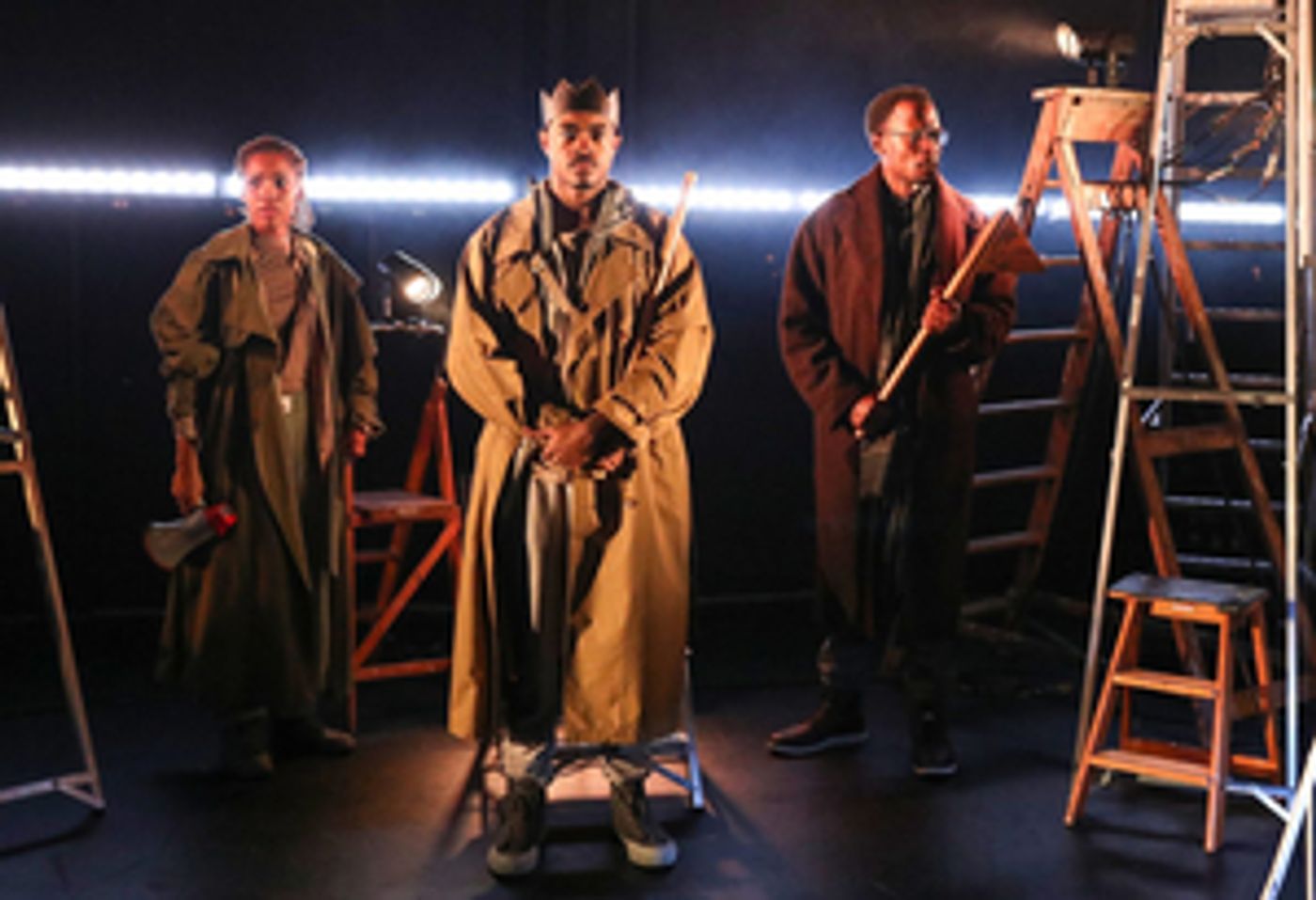Review: RICHARD THE SECOND, Omnibus Theatre
Radical new adaptation might not be as radical as it might be

 Pared back for a company of five actors and a set comprising assorted stepladders, Anna Coombs' adaptation of Shakespeare's play foregrounds its two strongest elements - the politics and the poetry. Its theme warning of how shifting alliances within a weak state can open the door to a populist new leader, could hardly land much more squarely than it does in 2022. I was not alone in nodding in recognition as Shakey dissected how statecraft succeeded and failed in the 14th century in exactly the same ways it does today.
Pared back for a company of five actors and a set comprising assorted stepladders, Anna Coombs' adaptation of Shakespeare's play foregrounds its two strongest elements - the politics and the poetry. Its theme warning of how shifting alliances within a weak state can open the door to a populist new leader, could hardly land much more squarely than it does in 2022. I was not alone in nodding in recognition as Shakey dissected how statecraft succeeded and failed in the 14th century in exactly the same ways it does today.
Richard II ineffectively mediates between two of his noblemen, Thomas Mowbray and Henry Bolingbroke, and they exercise their right to trial by battle. Only then does he intercede, exiling Mowbray for life and Bolingbroke for ten years (reduced to six on seeing his father's tears - weak, weak, weak). Having made a powerful enemy in Bolingbroke, he gives him a reason for mutiny by seizing his inheritance in order to fight a war in Ireland - stupid, stupid, stupid. With the King away, Bolingbroke comes back with an army, prosecutes a successful rebellion and forces Richard to surrender the Crown - by which time, he's had enough anyway. Henry rules England, the Fourth of that name.
Daniel Rock is a more assertive, more direct Richard than is often the case, speaking in verse but without the endless circumlocution and obfuscation that so infuriates his courtiers. He's also markedly less introspective and religious, which makes it less of a leap to imagine him a political leader of today. Rock speaks the verse very sympathetically, crucial if we are to see where Richard's personality resides and understand his fatal reluctance to descend into the grubby world of dealmaking within his court.
Raheim Menzies, muscles bulging, towering over his king, gives Henry the alpha male physicality he needs and captures his unease at simply taking a crown won by denying his oath and on a sea of bloodshed - Henry May be ruthless, but he's not amoral. Lebogang Fisher has an enhanced role as Aumerle, largely an observer until his loyalty is tested and he is forced to take sides in a reworked ending which came a little too swiftly to succeed. Sibusiso Mamba and Courtney Winston play a range of other roles as Richard's court disintegrates.
John Pfumojena provides Zimbabwean music, which is pleasing on the ear, especially the close harmony singing, but lends little more than ornamental pleasure to the production, resisting intergration within the narrative and design. Tangle Theatre Company champions African Caribbean artistic excellence - and this touring production indisputably does that - but it's still very much Shakespeare's play, the radical rewrite perhaps not as radical as I've seen in a Macbeth set in 17th century Benin for example. At two and a half hours (long for a venue like this), strange as it is to say, there might be too much of the original retained if the promise of the premise were to be fully explored.
Nevertheless, Richard II remains one of Shakespeare's most enduring plays, on a par with I, Claudius as a parable of the dangers attendant on retaining leaders unwilling or incapable of wielding power for the common good. This adaptation drives that message home, but does not find the potential in its aesthetic derived from roots distant from the land Shakespeare himself never left.
Richard The Second is at the Omnibus Theatre until 27 November
Photo Credit: Stuart Martin
Reader Reviews
Videos

